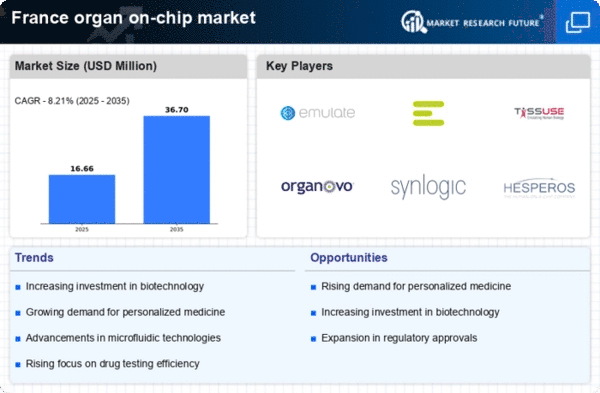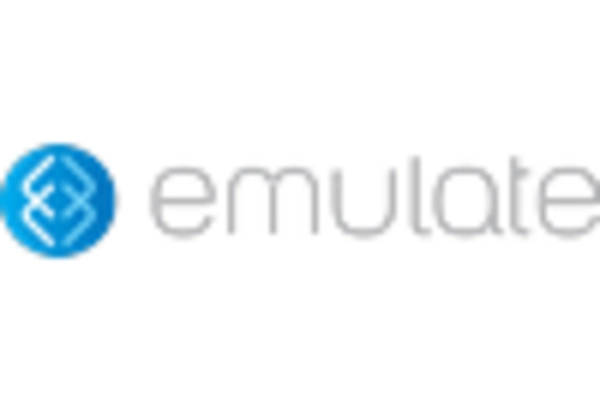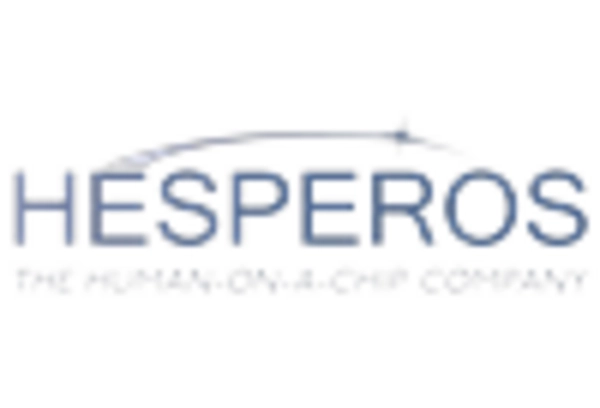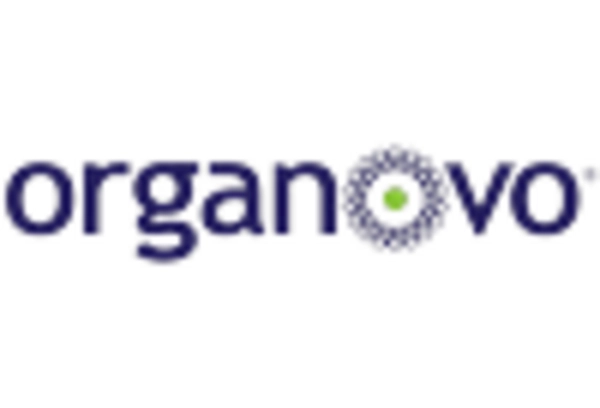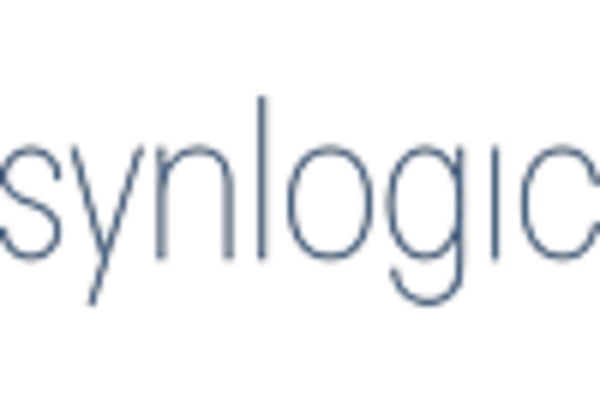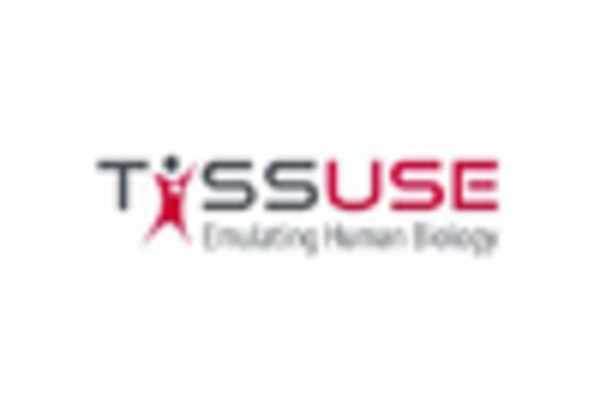Increased Investment in Biotechnology
In France, the organ on-chip market is benefiting from increased investment in biotechnology. The French government has recognized the potential of biotechnological innovations to transform healthcare and is actively supporting initiatives that foster research and development in this field. Public and private funding for biotech startups and research institutions has surged, with investments exceeding €1 billion in recent years. This financial backing is likely to accelerate the development and commercialization of organ-on-chip technologies, positioning France as a leader in this innovative sector. As a result, the organ on-chip market is expected to expand rapidly, driven by the influx of resources and talent dedicated to advancing these technologies.
Rising Demand for Personalized Medicine
The organ on-chip market in France is experiencing a notable surge in demand for personalized medicine. This trend is driven by the increasing recognition of the need for tailored therapeutic approaches that cater to individual patient profiles. As healthcare providers and pharmaceutical companies seek to enhance treatment efficacy, organ-on-chip technologies offer a promising solution by enabling the simulation of human organ responses to various drugs. The market is projected to grow at a CAGR of approximately 15% over the next five years, reflecting the growing investment in research and development. This shift towards personalized medicine is likely to propel the organ on-chip market forward, as stakeholders aim to leverage these technologies for improved patient outcomes.
Growing Focus on Reducing Animal Testing
The organ on-chip market in France is increasingly driven by a growing focus on reducing animal testing in biomedical research. Regulatory bodies and ethical organizations are advocating for alternative testing methods that minimize animal use, aligning with public sentiment against animal cruelty. Organ-on-chip technologies present a viable solution, offering researchers the ability to conduct experiments on human-like organ systems without the ethical concerns associated with animal testing. This shift is likely to lead to a broader acceptance of organ-on-chip solutions within the scientific community, further propelling the market. As the demand for humane research practices rises, the organ on-chip market is expected to gain traction, potentially reshaping the landscape of biomedical research.
Advancements in Drug Development Processes
The organ on-chip market in France is significantly influenced by advancements in drug development processes. Traditional drug testing methods often fail to accurately predict human responses, leading to high failure rates in clinical trials. Organ-on-chip technologies provide a more reliable alternative by mimicking human organ systems, thus enhancing the predictive power of preclinical studies. This capability is particularly crucial as the pharmaceutical sector faces increasing pressure to reduce development costs and timelines. The market for organ-on-chip solutions is expected to reach €500 million by 2027, driven by the need for more efficient drug development methodologies. Consequently, the organ on-chip market is poised for substantial growth as it aligns with the evolving demands of drug developers.
Collaboration Between Academia and Industry
The organ on-chip market in France is witnessing a surge in collaboration between academic institutions and industry players. This synergy is fostering innovation and accelerating the development of organ-on-chip technologies. Universities and research centers are increasingly partnering with biotech companies to leverage their expertise and resources, resulting in the creation of advanced organ-on-chip models. Such collaborations are essential for translating scientific discoveries into practical applications, thereby enhancing the market's growth potential. The French government is also promoting these partnerships through funding initiatives aimed at bridging the gap between research and commercialization. As a result, the organ on-chip market is likely to benefit from a steady influx of innovative solutions that address real-world challenges in drug development and disease modeling.


